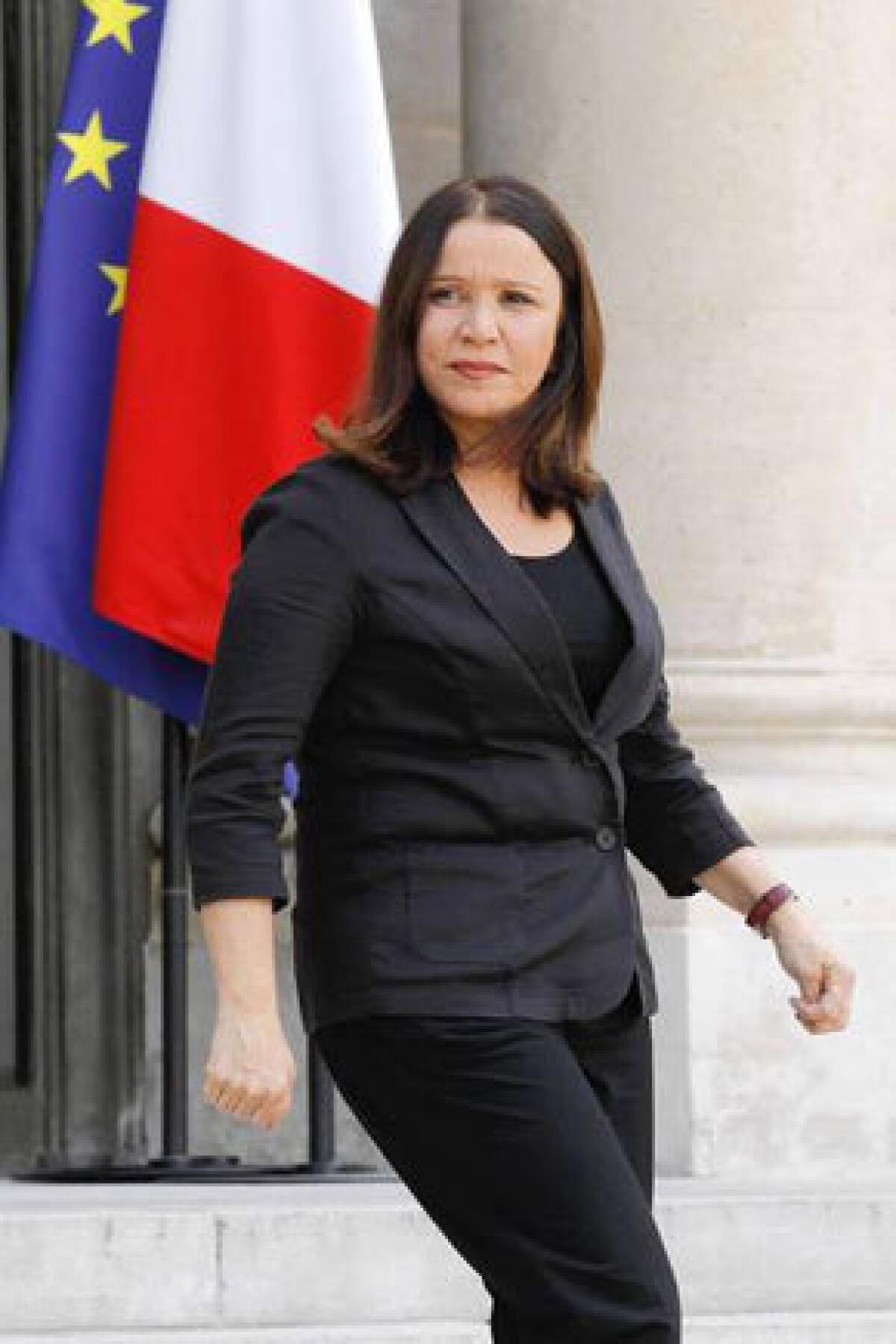In Israel, Labor Party chief’s shift to the right causes dissent

JERUSALEM — Israel’s political left cheered when newly installed Labor Party head Shelly Yachimovich led the faction from near-extinction two years ago to its current No. 2 ranking in polls for next month’s Knesset elections.
The feisty former journalist was heralded for her foresight in focusing on Israel’s high cost of living long before massive social inequality protests swept the nation last year.
But since rising to the helm of Israel’s oldest major political party, Yachimovich, 52, has stirred dissent within the ranks over her latest unconventional strategy: a lurch toward the political right in hopes of drawing centrist and even conservative voters to the historically liberal Labor.
As she prepares to face an increasingly right-leaning Israeli electorate, Yachimovich has been working to tone down her image as a hero of Tel Aviv’s left-leaning intellectual, secular elite.
Known as an outspoken socialist and feminist who refused to marry under the rabbinate religious authority, she once voted for Hadash, an Arab-Jewish party that advocates the withdrawal of all Israeli settlements from the West Bank.
In her first run for the Knesset in 2005, she complained that lavish government spending on settlements was hurting Israel’s economy and sapping resources for the poor.
The new Yachimovich is still an ardent socialist, attacking privatization and the unequal distribution of power and money. But she has surprised many supporters by staking out more centrist ground on the Israeli-Palestinian conflict.
She now says West Bank settlements are not a “sin or a crime” and vows to continue funding them, insisting they don’t divert money from Israel’s other needs and that settlers should not be abruptly abandoned by the state.
According to one Israeli news report, she told French government officials privately that she supports Israeli Prime Minister Benjamin Netanyahu’s refusal to freeze settlement construction as a precondition to peace talks.
But for the most part, Yachimovich, who declined to be interviewed, prefers not to talk about the Israeli-Palestinian conflict, a sharp departure from previous Labor leaders who viewed it as one of the party’s defining issues.
Although she supports a two-state solution and advocates sharing Jerusalem with Palestinians, Yachimovich’s campaign has been striving — with mixed success — to keep the political debate focused instead on social issues and economic reforms.
Talk about settlements, security and the peace process are a diversion, her supporters say, playing to the strengths of Netanyahu and the political right.
She’s been trying to reshape her party’s image as well. Labor “is not a leftist party and never was,” she told the Israeli news site Ynet. “It was a centrist party.”
Such comments are raising eyebrows among a few longtime supporters of Labor. Former Defense Minister Amir Peretz, a former mentor and, later, rival, abruptly quit the party this month, citing Yachimovich’s reluctance to lay down a specific policy regarding the Israeli-Palestinian conflict and refusal to rule out joining a Netanyahu-led government. He bolted to the new centrist party led by former Foreign Minister Tzipi Livni.
Haaretz newspaper columnist Gideon Levy, one of Israel’s leading left-wing journalists, wrote that Yachimovich was leading what he termed “the fake left,” which he criticized for caring only about the Jewish poor and ignoring the plight of Arabs.
Yachimovich’s political rivals, particularly those on the far left, have ridiculed her shift to the center. One mock Internet site depicts her wearing a settler-style kippa in front of a West Bank outpost under the title “Shelly Right-Wing-ovich.”
So far, most Labor Party members are expressing public support for Yachimovich’s strategy, predicting her fresh outlook and focus on pocketbook issues will score points with voters.
They say Yachimovich’s commitment to a Palestinian state is unchanged but that Israelis are tired of endless debate about the conflict and are more interested in lowering food prices, raising salaries and improving health benefits. Yachimovich built her legislative career on laws to extend maternity leave, make paychecks easier to read and require that supermarket cashiers have chairs.
“The campaign is very smart,” said Eytan Schwartz, a Labor Knesset candidate and advisor to Tel Aviv Mayor Ron Huldai. “She’s not hiding from the issues. Yes, Israelis care about geopolitical issues. But they also want a party to fight for a minimum wage, pensions and a good public education.”
Still, debate is raging within Labor over whether Yachimovich is a new-styled leader who will restore the party’s lost prominence or a rookie trying to skirt tough issues because of her lack of military or leadership experience.
The Jan. 22 vote will probably settle the debate. Labor, which won 13 seats in 2009 and was polling at three seats two years ago, is expected to win between 17 and 25 seats, recent polls suggest. Yet, even with such a rebound, Labor will be hard-pressed to beat Netanyahu’s right-wing coalition, which is widely expected to garner the votes needed to form the next government with Netanyahu at the helm.
“Maybe the lady is right,” said Daniel Ben-Simon, a Knesset member from Labor who acknowledged that he was skeptical about the strategy. Ben-Simon said he recently tried unsuccessfully to force the party to lay out a policy regarding the Israeli-Palestinian conflict, including endorsing a freeze in settlements.
“But she says that it’s not wise to set the agenda with Palestinians at the forefront,” he said.
The strategy is the brainchild of Stanley Greenberg, an American Democratic pollster who has predicted that Labor can win 25 seats, including stealing five or six from Netanyahu’s Likud Party, if it focuses on the social agenda, Ben-Simon said.
“Look, if it works and we can bring people from Likud to join us, then it makes me think, ‘My God, maybe I should shut up,’ ” Ben-Simon said.
Yachimovich was the first major candidate in the current election cycle to lay out a specific economic policy. She wants government social service spending raised by $38 billion over five years to pay for nursing care insurance, more hospital beds, free day care and more police, among other things.
To pay for the new benefits, she proposes raising taxes on corporations and closing tax loopholes. But the plan is silent on politically sensitive subjects, such as whether she would slash the defense budget or cut government subsidies to settlers and ultra-Orthodox Jewish groups.
“The old Shelly would have said the money would come from the defense system,” said Gabriel Weimann, a political analyst at the University of Haifa. “The new Shelly is less radical and doesn’t talk like that anymore. More careful, more moderate.”
News assistant Batsheva Sobelman in The Times’ Jerusalem bureau contributed to this report.
More to Read
Start your day right
Sign up for Essential California for news, features and recommendations from the L.A. Times and beyond in your inbox six days a week.
You may occasionally receive promotional content from the Los Angeles Times.






